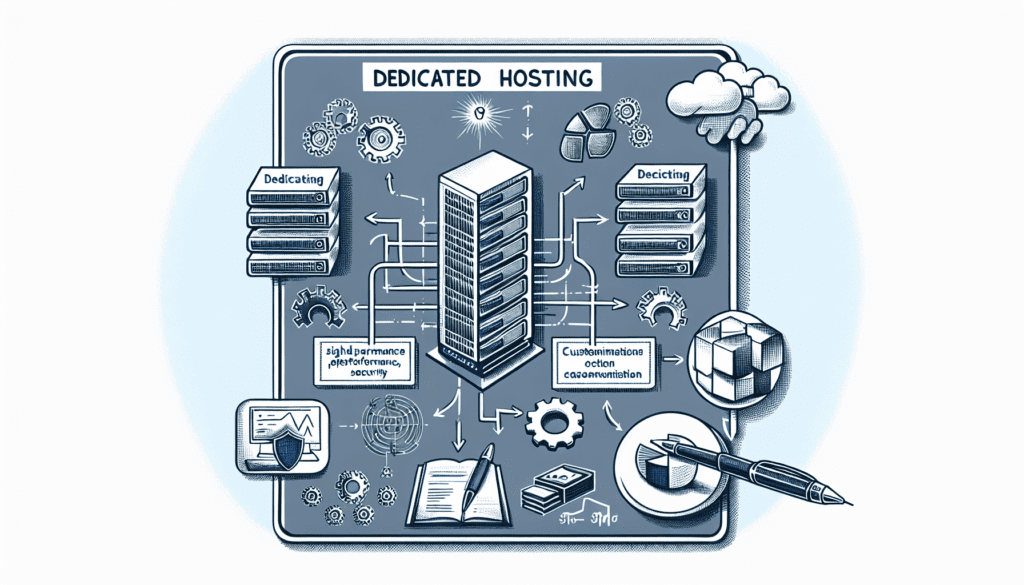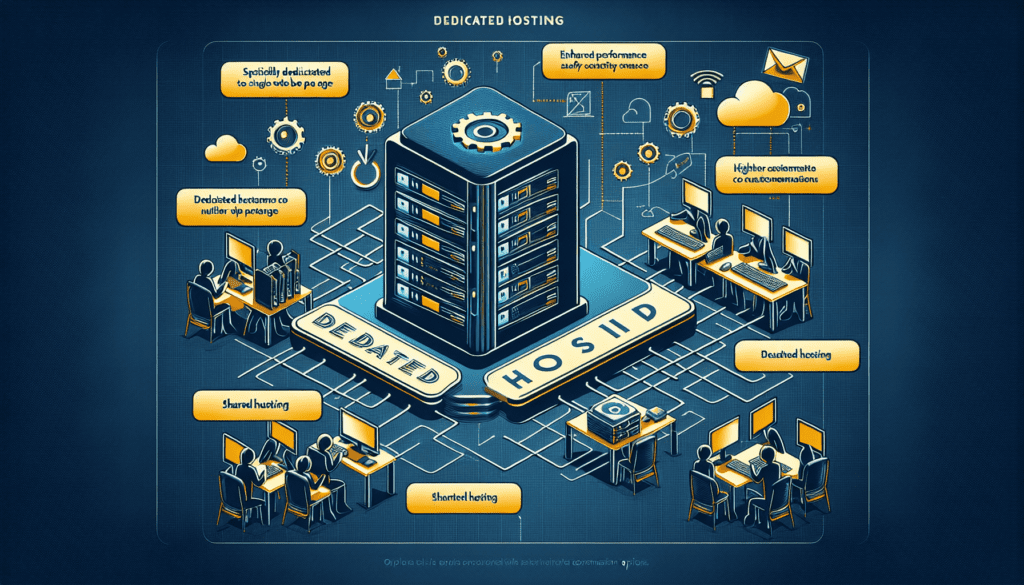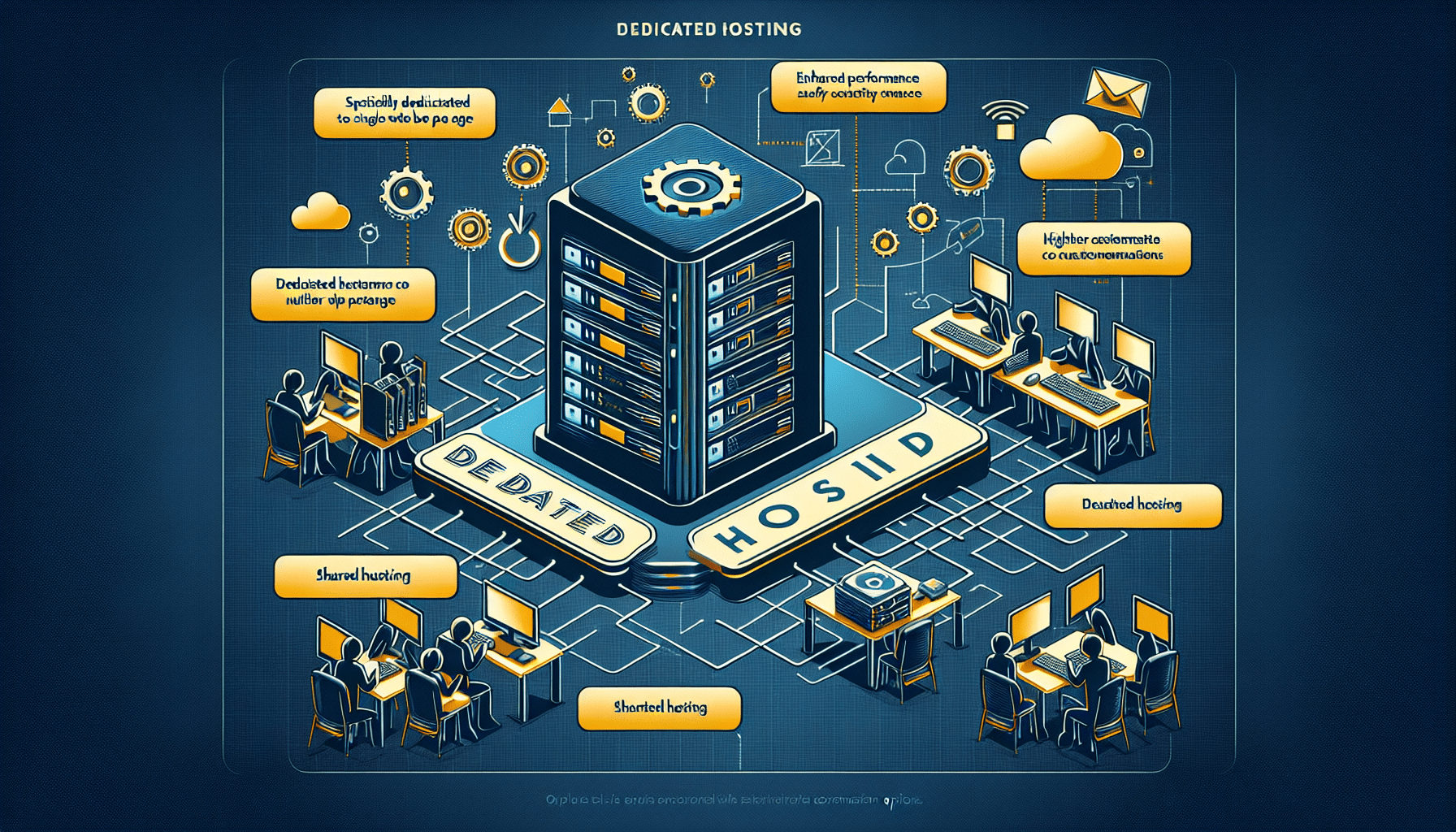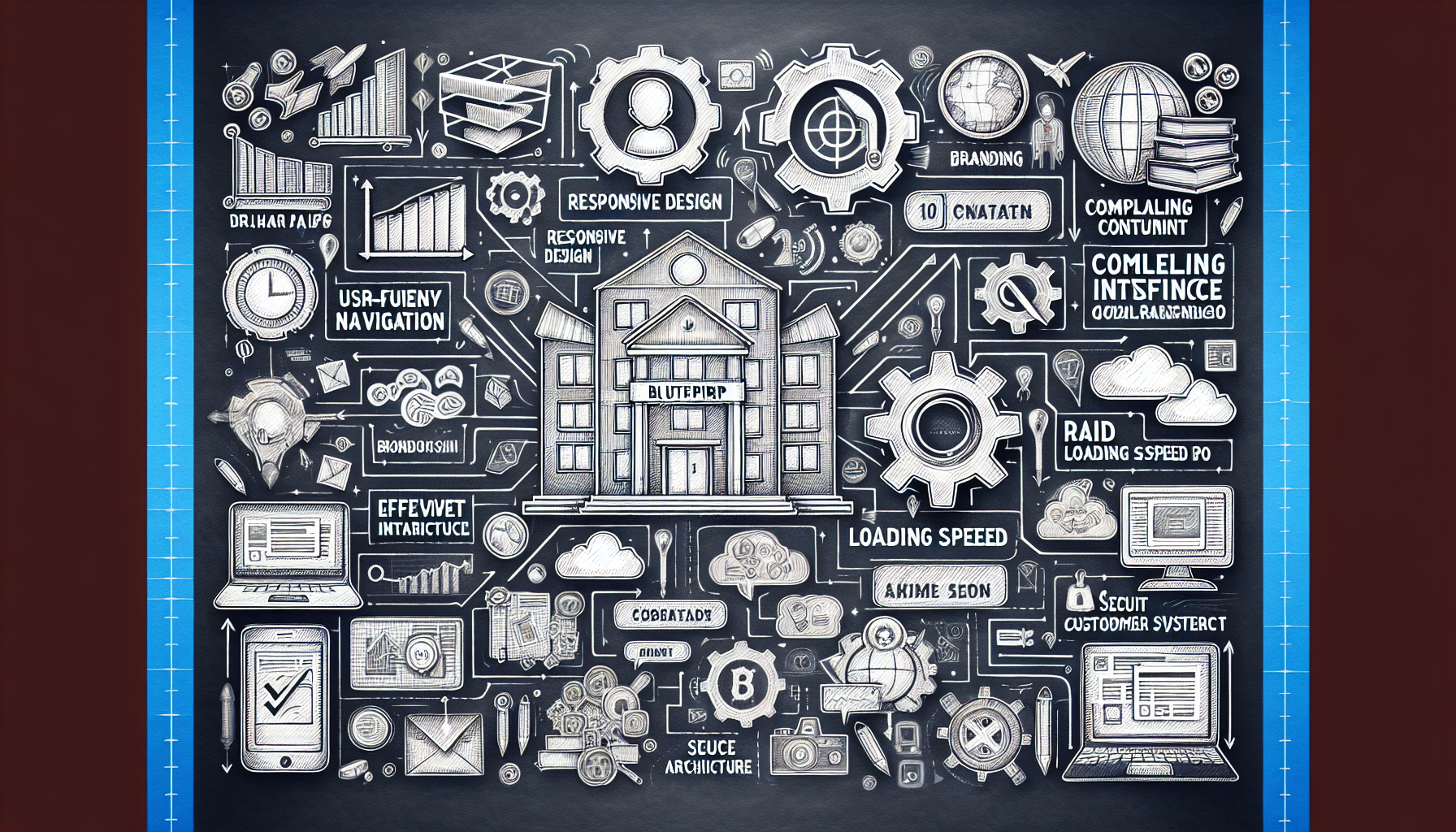You’re about to discover the world of dedicated hosting and all it has to offer. Have you ever wondered what it means to have a dedicated server exclusively for your website? Well, in this article, we’ll explore the ins and outs of dedicated hosting and explain why it might be the ideal solution for your online presence. So, get ready to unravel the mystery behind dedicated hosting and unlock its potential for your website’s success.
Definition
Explanation of dedicated hosting
Dedicated hosting refers to a type of hosting service where an entire server is exclusively dedicated to a single user or organization. Unlike shared hosting, where multiple users share the same server resources, dedicated hosting provides an individual or business with complete control and access to a server solely for their use.
Advantages
Improved Performance
One of the major advantages of dedicated hosting is the significant improvement in performance. Since there are no other users sharing the server resources, you have all the CPU power, memory, and storage capacity at your disposal. This ensures faster response times, smoother website performance, and optimal loading speeds, even during peak traffic periods.
Enhanced Security
Another key benefit of dedicated hosting is the enhanced security it offers. With dedicated hosting, you have full control over the server’s security measures, allowing you to implement robust firewall configurations, SSL certificates, and other security protocols tailored to your specific needs. This level of control ensures a higher level of protection against potential threats and reduces vulnerabilities compared to shared hosting environments.
Customization Options
Dedicated hosting also provides extensive customization options. You have complete control over the server’s operating system, software installations, and configurations. This allows you to optimize the server setup to suit your specific requirements, ensuring that you have the necessary tools and resources to run your applications or websites exactly the way you want.

Types of Dedicated Hosting
Managed Dedicated Hosting
With managed dedicated hosting, the hosting provider takes care of the server’s management and maintenance tasks on your behalf. This includes routine updates, security patches, performance optimization, backups, and monitoring. Managed dedicated hosting is an excellent choice for those who lack the technical expertise or resources to manage their own server effectively. It allows you to focus on your core business and leave the server management to experts.
Unmanaged Dedicated Hosting
In contrast, unmanaged dedicated hosting requires the user to handle all aspects of server management. While this option offers more control and flexibility, it also requires a higher level of technical skill and expertise. Unmanaged dedicated hosting is suitable for users who have the necessary technical knowledge and resources to manage the server independently or have dedicated IT personnel to handle the server-related tasks.
Features
Dedicated Resources
One of the key features of dedicated hosting is the availability of dedicated resources. Since the entire server is allocated for your use, you have exclusive access to all the server’s resources, including CPU, RAM, storage, and bandwidth. This ensures that your applications or websites have the necessary resources to run efficiently, even during high-demand periods.
Root Access
Root access refers to the administrative control and full access to the server’s operating system and underlying hardware. With root access, you have the freedom to install and configure any software or applications that you require, without any restrictions. This level of access provides greater flexibility and control over the server environment, allowing you to tailor it to your specific needs.
Scalability
Scalability is another important feature of dedicated hosting. As your business grows or your resource needs change, dedicated hosting allows you to easily scale up your server resources to accommodate the increased demand. This scalability ensures that your server can handle the growth of your applications or websites without any performance degradation.
Multiple Domains
Dedicated hosting also enables you to host multiple domains on a single server. This means that you can manage multiple websites or applications from a centralized location, simplifying the management process. Whether you have multiple businesses or simply need to host different websites for various purposes, dedicated hosting offers the flexibility to handle multiple domains efficiently.

Use Cases
High-Traffic Websites
Dedicated hosting is particularly beneficial for high-traffic websites that receive a large volume of visitors. With dedicated server resources, your website can handle the increased traffic without experiencing any performance issues or downtime. This ensures a seamless user experience and allows your website to deliver content quickly, regardless of the number of concurrent visitors.
Large E-commerce Platforms
E-commerce platforms with extensive product catalogs, high transaction volumes, and complex functionalities can greatly benefit from dedicated hosting. Dedicated servers provide the performance and resources required to handle the processing of online transactions, inventory management, and customer data securely. This ensures a smooth and secure online shopping experience for your customers.
Enterprise Applications
Dedicated hosting is also popular among businesses that rely on enterprise applications or require custom software deployments. With dedicated resources and the ability to customize the server environment, enterprises can ensure optimal performance, robust security, and seamless integration with their existing IT infrastructure. Dedicated hosting provides the required stability and reliability for mission-critical applications.
Considerations
Cost
While dedicated hosting offers numerous advantages, it is important to consider the cost implications. Dedicated hosting tends to be more expensive compared to shared hosting or other hosting options. However, the cost is justified by the exclusive access to resources, improved performance, and enhanced security. Businesses should carefully evaluate their budget and resource requirements when deciding whether to opt for dedicated hosting.
Technical Skills and Management
Managing a dedicated server requires a certain level of technical expertise. Users should have the necessary skills and knowledge to handle server configurations, security updates, and routine maintenance tasks. Alternatively, businesses can choose managed dedicated hosting where the hosting provider takes care of the server management. It is essential to assess the available resources and determine whether you have the expertise or require external assistance.
Maintenance and Support
Consideration should also be given to the maintenance and support provided by the hosting provider. It is important to ensure that the hosting provider offers reliable technical support, uptime guarantees, and regular backups. This ensures that any technical issues or maintenance tasks are promptly addressed, minimizing downtime and ensuring the continuous operation of your applications or websites.
Comparison with Other Hosting Types
Shared Hosting
Shared hosting involves multiple users sharing the same server resources. While shared hosting is more affordable, it lacks the performance and security advantages of dedicated hosting. Shared hosting may be suitable for beginners or small websites with low traffic, but it may not meet the needs of businesses or websites with higher resource requirements.
VPS Hosting
Virtual Private Server (VPS) hosting mimics the environment of a dedicated server while sharing the physical server with other users. With VPS hosting, you have dedicated resources allocated to you, providing better performance and security compared to shared hosting. While VPS hosting offers more control than shared hosting, it may not provide the same level of performance as dedicated hosting.
Cloud Hosting
Cloud hosting utilizes a network of interconnected servers to host websites or applications. Cloud hosting offers scalability, high availability, and the ability to pay for resources on an as-needed basis. While cloud hosting can provide similar benefits as dedicated hosting, it may not offer the same level of performance or control. Dedicated hosting is often preferred for resource-intensive applications or when maximum control is required.
How to Choose a Dedicated Hosting Provider
Evaluate Server Hardware
When choosing a dedicated hosting provider, it is crucial to evaluate the server hardware they offer. Ensure that the server hardware is of high quality, reliable, and capable of handling your resource requirements. Look for hosting providers that use reputable brands and have redundant hardware setups to minimize the risk of hardware failures.
Network and Data Center
Consider the network infrastructure and data center facilities of the hosting provider. Look for providers with robust network connectivity, multiple internet service providers, and ample bandwidth. Additionally, check the data center’s physical security measures, cooling systems, power backups, and system redundancies to ensure maximum uptime and reliability.
Support and Service Level Agreements
Evaluate the support and service level agreements (SLAs) offered by the hosting provider. Ensure that they provide 24/7 technical support and have a reliable ticketing system or live chat for prompt issue resolution. Review their SLAs to understand their commitment to uptime guarantees, response times, and compensation policies in case of service interruptions.
Conclusion
Summary of the benefits and considerations of dedicated hosting
Dedicated hosting provides improved performance, enhanced security, and extensive customization options. It caters to high-traffic websites, large e-commerce platforms, and enterprise applications. However, it is important to consider the cost, technical skills required, and the level of maintenance and support needed. Comparing dedicated hosting with other options such as shared hosting, VPS hosting, and cloud hosting helps determine the best fit. When choosing a dedicated hosting provider, evaluating server hardware, network infrastructure, and support services is essential. Ultimately, the decision to opt for dedicated hosting should be based on the unique needs and requirements of your business or organization.














